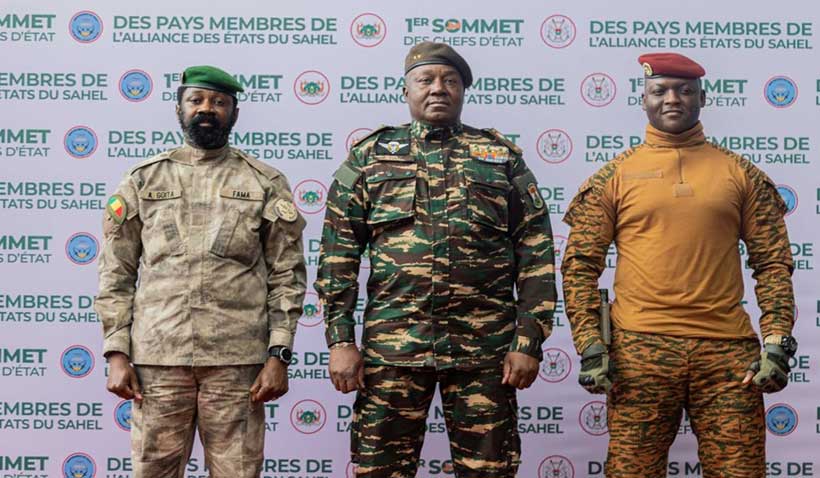
In a show of growing regional solidarity, defence ministers from the Confederation of Sahel States (AES) convened in Bamako on Friday for a high-level strategic consultation aimed at reinforcing joint security operations and military cooperation across the troubled Sahel.
The delegation was received by Malian transitional president General Assimi Goïta, who currently holds the rotating presidency of the AES.
The confederation, comprising Mali, Burkina Faso, and Niger, was established as a regional bloc to address common political and security challenges, particularly those posed by terrorism and transnational crime.
The meeting marked a key milestone in the bloc’s efforts to operationalise its common strategic vision for defence.
“This meeting provided an opportunity to take stock of the implementation of the common strategic vision adopted by the heads of state of the Confederation,” said Malian Defence Minister General Sadio Camara following the discussions.
The ministers reviewed the progress made in coordinating joint military operations, pooling regional defence resources, and consolidating earlier gains in counter-terrorism campaigns.
Camara also highlighted the growing competence and resilience of the AES defence and security forces, lauding their “remarkable efforts” in pushing back against armed insurgent groups.
Despite persistent instability, the AES nations have intensified their cooperation since distancing themselves from traditional international military partnerships.
The Bamako talks underscored a renewed commitment to regional self-reliance and sovereign defence capabilities.
President Goïta used the occasion to urge deeper synergy between member states’ armed forces, calling on them to continue enhancing their operational readiness and to remain steadfast in anchoring a shared Sahelian military doctrine rooted in sovereignty and mutual support.
As the region faces mounting threats from extremist factions and growing humanitarian pressures, the AES’s ability to consolidate and expand its security collaboration may prove decisive in reshaping the Sahel’s long-term stability.



